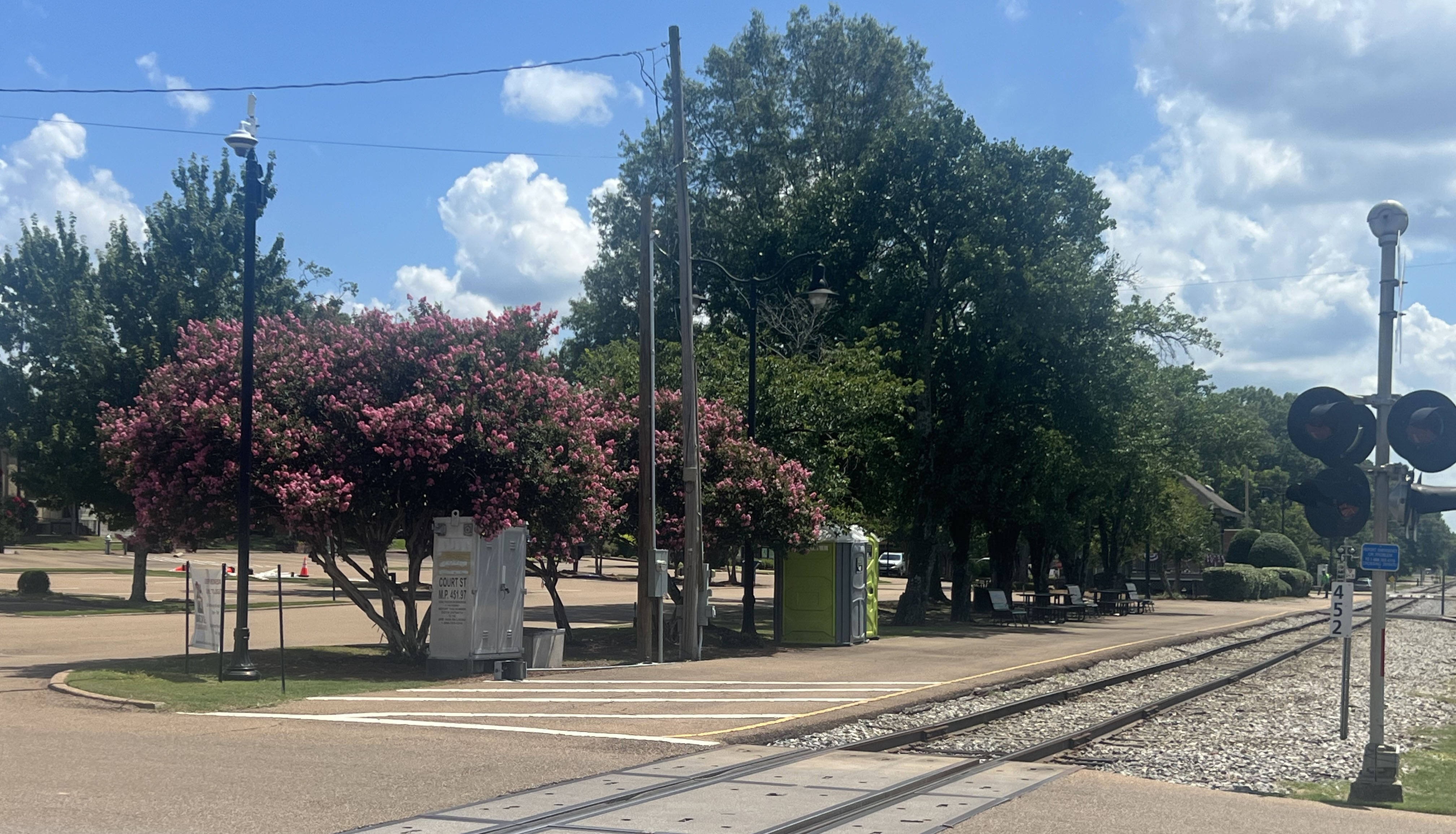Paul Hadinger letter
Published 12:00 am Tuesday, June 10, 2008
Letter to the editor from Paul Hadinger
Returning from Memphis on Friday night, May 30, I pulled off of I-55 onto the ramp in Sardis to buy gas. I saw a number of law enforcement vehicles and personnel and assumed that an accident had occurred.
As I approached the end of the ramp, someone to my left ahead of me shined a blinding, high-beam flashlight into my eyes and temporarily blinded me. I came close to hitting a state trooper on my right who was standing by another car talking to (my translation: harassing) another driver.
Trending
I was asked for my driver’s license, which I produced. I asked about the reason for the stop. Response: “Safety check.” I asked again, hoping to get more than a two-word response, but heard, “Safety check.” I assumed that the person had been programmed to utter this simple, programmed, robotic response with the belief that such would justify anything that he or others in uniform decided to do. Obviously, this whole operation with law enforcement vehicles on both sides of I-55 (estimated 6-8 vehicles) and personnel numbering an estimated 8-12 was for reasons other than a “safety check.”
I then asked if I would be stopped again if I crossed the road to buy gas and proceeded to go further south on I-55, and was given a one-word response:
“Probably.” (my translation: “Because we are in uniform with badges and guns, we can stop any citizen for any reason anywhere at any time unnecessarily and unlawfully and especially as long as we say something like ‘safety check,’ ‘seat belt check’ to cover or ‘justify’ our actions.”)
Hearing that, I elected to skip the gas; cross the road; and go further south to buy gas. Upon leaving, the apparent rookie or otherwise untrained, verbally challenged person with the high-beam light who temporarily blinded me, nearly causing an accident, had the audicity to say, “Be careful.”
The foregoing is not an indictment of all law enforcement personnel or activities. However, such stops operate on a premise contrary to the basic principle that we are innocent until proven guilty. The stops, for whatever reason given, basically imply that we are guilty until we can prove ourselves innocent, which may not be enough, or which will be disputed, with no recourse available to us, or available to us without much more time and cost.
If these events are attempts to cast wide nets in hopes of nailing a felon or someone similar, they are apparent attempts to compensate for the inability and apparent lack of desire and perseverance to go after known criminals, in that dozens or hundreds of people are stopped at each point in hopes that someone will be snagged who deserves such.
Trending
Probably 90 to 95 percent or more of drivers stopped are law-abiding citizens who have no warrants out for them; who have their drivers’ licenses up to date; who are not drinking and driving; who are not speeding or driving recklessly otherwise, etc.
Let’s be logical, if that’s not too much. Most or all people who are running from or trying to avoid the law are going to be wary constantly of possible checkpoints and will do what they can to avoid them, which means that very few of them, comparatively speaking, are ever caught in such traps. The few who may be caught still do not justify or make legal the harassing of hundreds and thousands of law-abiding citizens in hopes of nailing a few whom they cannot catch otherwise for reasons that may be related to inadequate training, planning and organization.
I believe if all of these personnel and equipment are available to harass citizens unnecessarily, it is time to cut taxes, budgets, personnel, equipment and vehicles.
Years ago, people in law enforcement seemed to desire the support of their local communities. They appear to have moved toward an attitude that all citizens are possible “suspects” or “criminals” and must prove themselves not guilty of something. Government officials in general, and law enforcement personnel in particular seem to have forgotten that they are paid for their jobs from taxes imposed upon their fellow citizens.
While I’m at it, we don’t need laws or “safety checks” to protect us from ourselves. This includes seat belt laws or stops to check to see if we are wearing them. I wear one as a driver or as a passenger because I want to for my own safety.
For those who missed the thinking behind the seat belt laws, which were sold on the basis of “safety,” all of this is part of the psychological conditioning process to get us to passively accept and become accustomed to being stopped more frequently and doing so as good little boys and girls as we fork over our driver’s licenses and allow ourselves to be subjected to undue harassment, interrogations and inspections of various sorts. (No, I do not and have not carried anything illegal in my vehicle, nor do I have points on my license, nor do I drink or use other drugs.)
As time goes on, and unless we can find some government leadership locally or at the state level that uses our taxpayer law enforcement personnel for real crime-fighting activities, we will be stopped more and more frequently. Eventually, most of the “sheeple” (you get the point) will acquiesce without a whimper or a bleat and will be fully programmed for the time of martial law that will come when the next “crisis” is created at the national level that will be used as a reason to declare martial law to harass us further and daily on a regular basis at many checkpoints manned by local, county, state and federal police and military troops.
In conclusion, please know again that this letter is not to indict or excoriate those law enforcement personnel or their superiors who conduct themselves in a more intelligent, safe, legal and mature fashion relative to their fellow citizens than the ones I recently encountered.
Although we will probably be lied to about the real reason for any stop, all citizens have the right to request the name of who stopped them, the name of that person’s superior, and the badge number of the one who stopped them and the right to take action for unfair, illegal or bad treatment otherwise.
Sincerely,
Paul E. Hadinger





